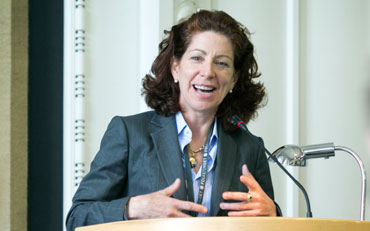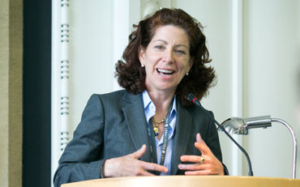A Panel Discussion on the World Bank Report, “Inclusive Green Growth”
On June 26, 2012, Dr. Marianne Fay, Chief Economist of the Sustainable Development Network presented the World Bank report entitled “Inclusive Green Growth”, followed by a panel discussion in Washington, D.C. Commentators included Dr. David Reed, the Senior Vice President, Policy of the World Wildlife Fund, and Dr. Rosina Bierbaum, Professor of Natural Resources and Environmental Policy at the University of Michigan.
Following the Rio+20 UN Conference on Sustainable Development, panelists upheld the importance of inclusive, sustainable economic growth. Accordingly, the report puts forth a three-pronged strategy to achieve this goal. Highlighted methods include appealing to immediate and short-term benefits, creating incentives for private sector investment, and promoting sustainable decision and policy making such as natural capital accounting.
Referencing Christine Lagarde’s recent speech on sustainable development, Dr. Fay pointed out that while “getting the prices right” is fundamental to building a green economy, that it would not act as a catalyst on its own. Similarly, Dr. Bierbaum informed the audience that cost-efficient alternatives are insufficient for stimulating investment. Panelists insisted that in order to achieve a green economy, a change in human behavior must occur, alongside a shift in private investment, given the proper incentives. Nevertheless, while each commentator recognized the importance of attracting the private sector and communities to facilitate this change, little was discussed as to what those incentives might be.
Pointing out another important issue, Dr. Reed emphasized the need for a micro-level focus on members of the communities such as farmers, civil society members, microfinance institutions and social entrepreneurs. While he supported the World Bank report, he also pointed out what he called a “major disconnect” between the document and a strategy on how to involve all stakeholders in fostering a green economy; not just the World Bank and government agencies. His comments raised the question as to what incentives could build such a network to support this effort?
As Dr. Fay mentioned, no matter how high gas prices rise, the majority of a population will continue to pay for the fuel if they do not have a public transportation system that provides them with another option. Accordingly, governments and the private sector must work together to provide and invest in the infrastructure necessary to support green growth. Sustainable transportation systems and increasing access to ICT, for example, are two topics that took center stage at the Rio+20 conference last week. Multilateral banks committed over $175 billion dollars to support sustainable transportation systems in the developing world, and ICT has been recognized as a key strategy for inclusive sustainable development.
While the World Bank and similar financial institutions may not be able to provide incentives for private sector investment, they can provide funding to assist financially struggling governments pursue this path of sustainable development. Marianne Fay suggested that a combination of both regulatory policies and price instruments be used, in conjunction with social policies that help the poor deal with the transition. The discussion concluded with a reminder to the audience, that the goal is not to slow growth, but to change the way in which we develop. Perhaps once the incentives are better defined, and strategies are tailored to the context of each individual country, drivers of the economy will be more open to change.








































